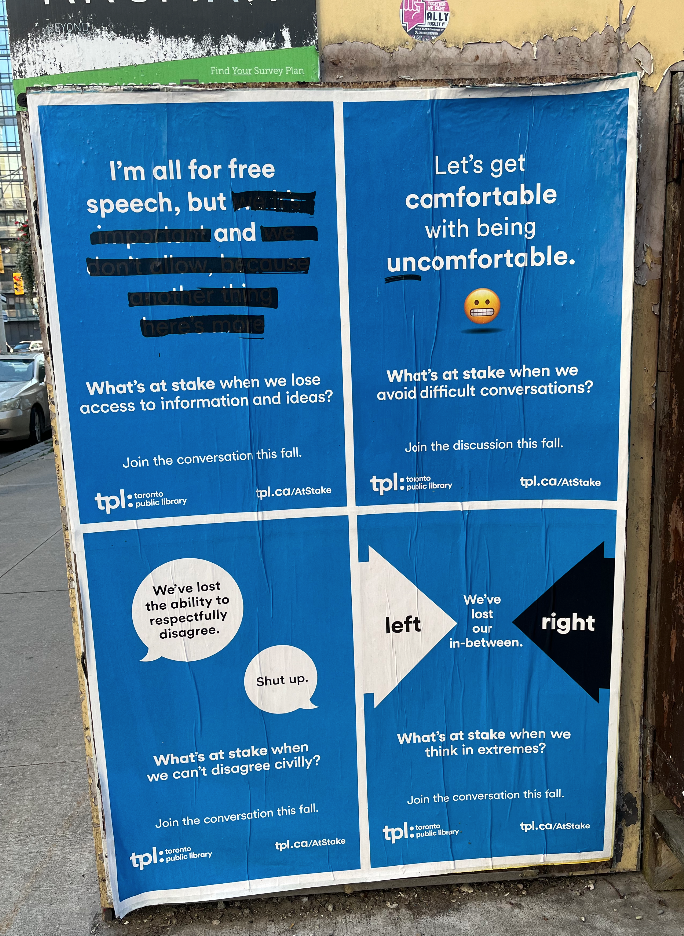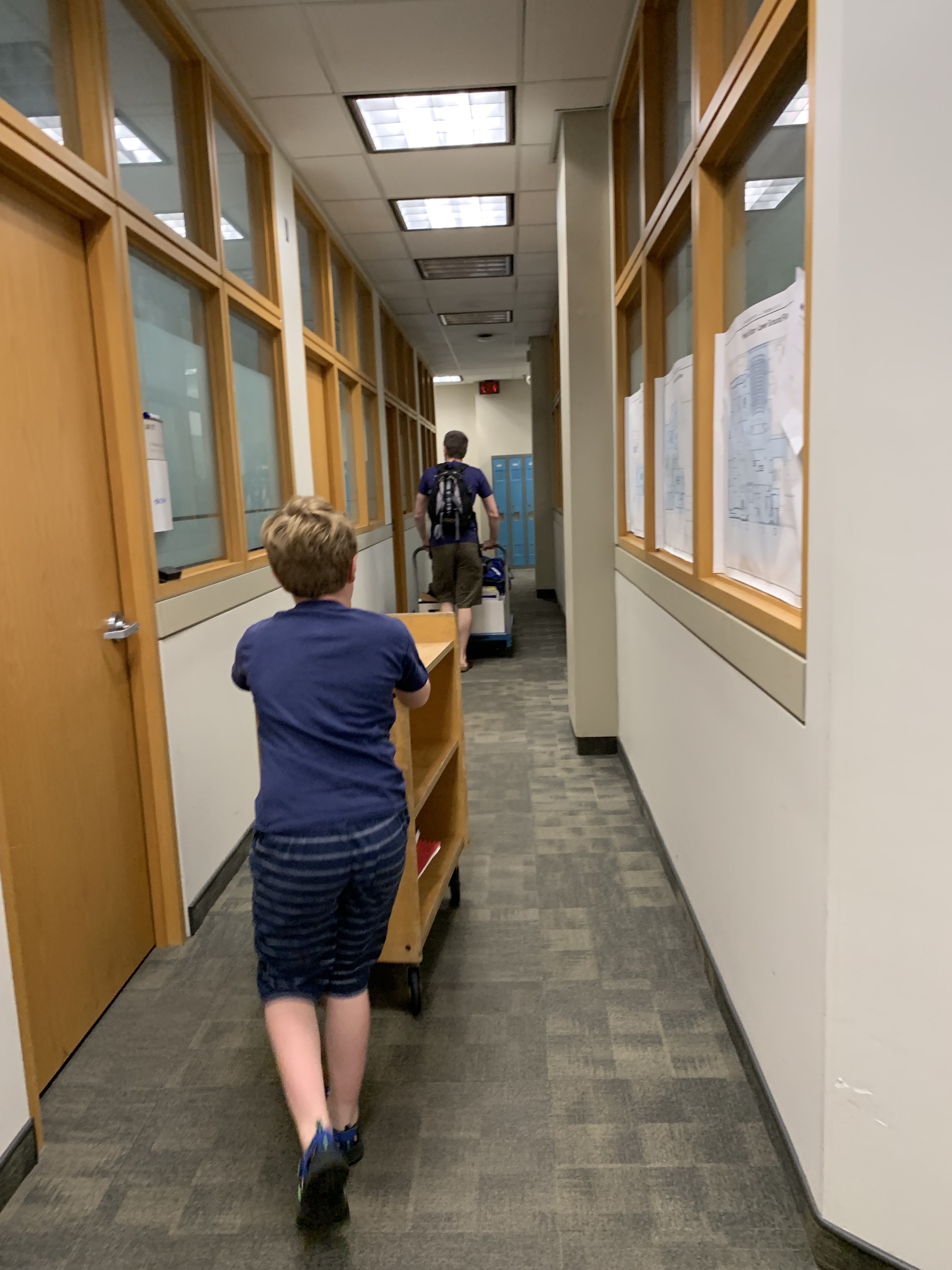September 20 was a big day in Canada. It was a day where a significant number of people in this country decided it was time to take to the streets. Some marched under the banner of No Space for Hate and others under 1 Million March 4 Children (the math is in question). From what I’ve been able to gather, depending on where you were, there were many more in attendance on either side. It seems in some of the Prairie cities, there were far more of those marching for so-called “parental rights”, and fewer showing up in support of the LGBTQ+ community. I was on the ground in Vancouver, and was heartened by the overwhelming crowd on the No Space for Hate side, and dispatches I saw from my hometown, Toronto, indicated the same.
As I wrestled with jet lag, I went down a bit of a rabbit hole on Twitter, trying desperately to stay awake. What I saw was very troubling. Everything from video of a young child – no more than 7 or 8 – on a stage with a microphone, being egged on by a grown man and a cheering crowd, uttering absolutely despicable homophobic slurs. I felt ill. I saw back and forth exchanges between the both sides, each accusing the other of inflating the numbers and calling each other groomers. I saw queer and allied Black, Indigenous and Muslim folks wrestle with how they can reconcile the hate they were encountering from the people in their communities. I saw politicians and large organizations taking their stances and making bold statements of support on either side (or, in the case of the Conservative party, choosing to say nothing). It’s very clear to me that there are two sides to this coin. You are either for or against. I’m really struggling to see the light in this darkness.
Enter: the Toronto Public Library’s latest intellectual freedom campaign. Where to begin. I suppose it’s important to unequivocally state that the programming looks excellent. I have registered for Opposition Denied and am happy to see the other very important and timely issues being taken up. Kudos to the organizers – these look great. But… the posters. We need to talk about the posters.

Image description: four posters on a street in Toronto
First up: we see a statement that starts with “I’m all for free speech, but [redacted]…” with a provocation at the bottom asking “what’s at stake when we lose access to information and ideas?” I use the term provocation because I’m pretty sure that was the intent, but in reality, this is a well worn absolutist trope that is essentially meaningless in the year of our creator, 2023. Unless we are talking specifically about the removal of particular books from libraries and subsequently defunding them, the digital divide or journalists being detained (or worse), I don’t actually know what this question is really asking. I mean, this world we’re living in has got 99 problems, but a lack of information certainly isn’t one. What I would prefer we were talking about is the much more insidious wicked problem of disinformation and its weaponization. I don’t see that in this poster, and truly, if we want to confront what’s really threatening democracy, let’s start with that. Please?
Up next: “Let’s get comfortable with having uncomfortable conversations.” The word “comfortable” is doing a lot of heavy lifting here, especially in the context of the issues of the day. What “uncomfortable” conversations are we talking about? Does this mean that a trans kid should be expected to just get cozy with a mug of tea and pull up a chair to talk to a grown ass person who thinks that they should be denied health care that will validate their existence? Does this mean that a refugee should invite a politician to have a beer with them and chat about how their presence in the country is a menace? Does this look like a drug consumer inviting a local NIMBY to hang out with them while they wait in line for their turn at the local consumption site that is being actively demonized? It’s the naivety in this statement that just really, really galls me. One person’s “uncomfortable” conversation is another person’s existential threat. These are not the same things.
Third: we see conversation bubbles of an imagined dialogue where the response to “We’ve lost the ability to respectfully disagree” is “shut up.” Not only is this imagined dialogue an utter failure to reflect what actually happens in any social media comment war (people actually have a lot to say to each other – the trouble is that not a lot of it makes sense and it’s mainly people talking over each other), it’s reductionist and I have no more words to say about it. Next.
Last but not least: “We’ve lost our in-between”. Ye olde neutrality chestnut! It wouldn’t be an IF campaign from a public library if we didn’t polish this old gem! Look, so much ink has been spilled about neutrality – most of it from people WAY smarter than I. There’s no need to re-hash those points here. BUT – in the context of the introduction to this blog post, I have to ask – where is the in-between in this conversation? Whose in-between? How are we defining the left and the right in this context? Where does fascism reside on this spectrum? It is offensively simplistic to suggest that the issues of the day will be solved if we all just get together and try to find some middle ground. Would that be nice if it could happen? Absolutely. In my dreams, we can all get together and have a chat – see each other, hear each other, value each other’s humanity and right to be here and thrive. But we DO NOT LIVE IN THIS WORLD. We just don’t. Naively clinging to these long held platitudes does not make them real or effective.
While I was in that Twitter rabbit hole, I was horrified to see how quickly the comments turned to violence and hate. Like, just straight up “let’s shoot that person” – there was no subtlety or “in-between” to be found there. Conversations about intellectual freedom need to acknowledge the new reality that we are living in, and unfortunately, this one has not hit that mark.



